 | Warren Colburn - Algebra - 1825 - 400 pages
...x is Examining the formation of the above coefficients, we observe, that each coefficient was found by multiplying the coefficient of the preceding term by the exponent of the leading quantity a in that term, and dividing the product by the number which marks the place of... | |
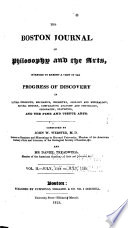 | Science - 1825 - 630 pages
...x is Examining the formation of the above coefficients, we observe, that each coefficient was found by multiplying the coefficient of the preceding term by the exponent of the leading quantity a in that term, and dividing the product by the number which marks the place of... | |
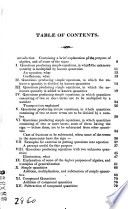 | Warren Colburn - Algebra - 1828 - 330 pages
...+Tax"+x> Examining the formation of the above coefficients, we observe, that each coefficient was found by multiplying the coefficient of the preceding term by the exponent of the leading quantity a in that term, and dividing the product by the number which marks the place of... | |
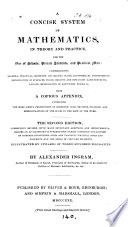 | Alexander Ingram - Mathematics - 1830 - 458 pages
...first term is 1, that of the second is the name of the power, and in the following terms it is got by multiplying the coefficient of the preceding term by the exponent of the leading quantity in that term, and dividing the product by the number of that term. 5. That when... | |
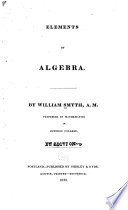 | William Smyth - Algebra - 1830 - 278 pages
...therefore the following rule, by which to form the coefficient of any term whatever, viz. Multiply the coefficient of the preceding term by the exponent of x in this term, and divide the product by the number, which marks the place of this term. From what has... | |
 | Bourdon (M., Louis Pierre Marie) - Algebra - 1831 - 326 pages
...whatever place is formed by means of the preceding coefficient. Ihe coefficient of a term of any place is formed by multiplying the coefficient of the preceding term by the exponent of x in this term, and dividing the product by the number of terms which precede that which is considered,... | |
 | Mathematics - 1836 - 530 pages
...shies, so that the coefficient of x*-' a' is the same as that of xr aC-'. See art [264]. Fourthly, that the coefficient of any term is formed by multiplying...term by the exponent of x in that term, and dividing by the number of terms preceding the one in question. This rule is of much practical utility, as it... | |
 | William Smyth - Algebra - 1836 - 288 pages
...therefore the following rule, by which to form the coefficient of any term whatever, viz. Multiply the coefficient of the preceding term by the exponent of x in that term, and divide the product by the number, which marks the place of that term from the left. From what has been... | |
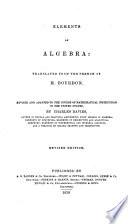 | Algebra - 1839 - 368 pages
...development, a simple law will be perceived, by means of which the co-efficient of any term is formed from the co-efficient of the preceding term. The co-efficient of any term is formed by multiplying the co-rfficient of the preceding term ly the exponent of x in that term, and dividing the product by the... | |
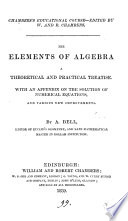 | Andrew Bell (writer on mathematics.) - 1839 - 500 pages
...— 1 ), and dividing it by и ; therefore, generally. (484.) ' The coefficient of any term is found by multiplying the coefficient of the preceding term by the exponent of the leading quantity in that term, and dividing by the number denoting the place of the latter term.... | |
| |